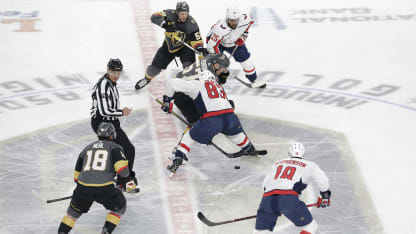Golden Knights defensemen combined for four points (one goal, three assists) in a 6-4 win in Game 1 and three points (one goal, two assists) in a 3-2 loss in Game 2.
After going without a point in the first 15 playoff games, Deryk Engelland had two assists in Game 1, and his eight shots on goal in the series are second on Vegas behind Jonathan Marchessault's 14.
Colin Miller's six shots are third, including a Golden Knights-high four on the power play. He has a goal and an assist in the series. After leading Vegas defensemen with 41 points (10 goals, 31 assists) in 82 regular-season games, Miller was fourth with three points (two goals, one assist) in the first 15 games of the playoffs.
Shea Theodore is the Golden Knights' highest-scoring defenseman in the postseason, his nine points (three goals, six assists) tied for sixth among NHL defensemen. He had an assist in Game 1 and a goal in Game 2.
Washington's John Carlson, who scored in Game 1, leads NHL defensemen with 17 points (four goals, 13 assists) in the playoffs.

